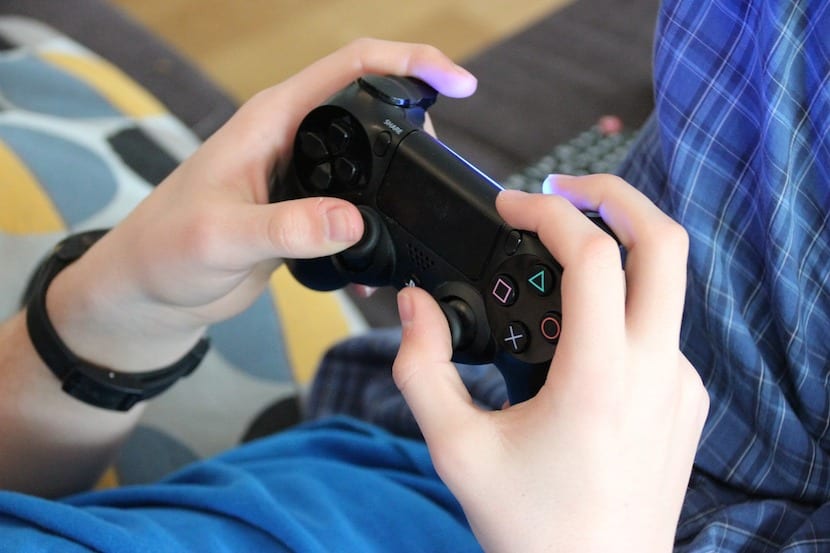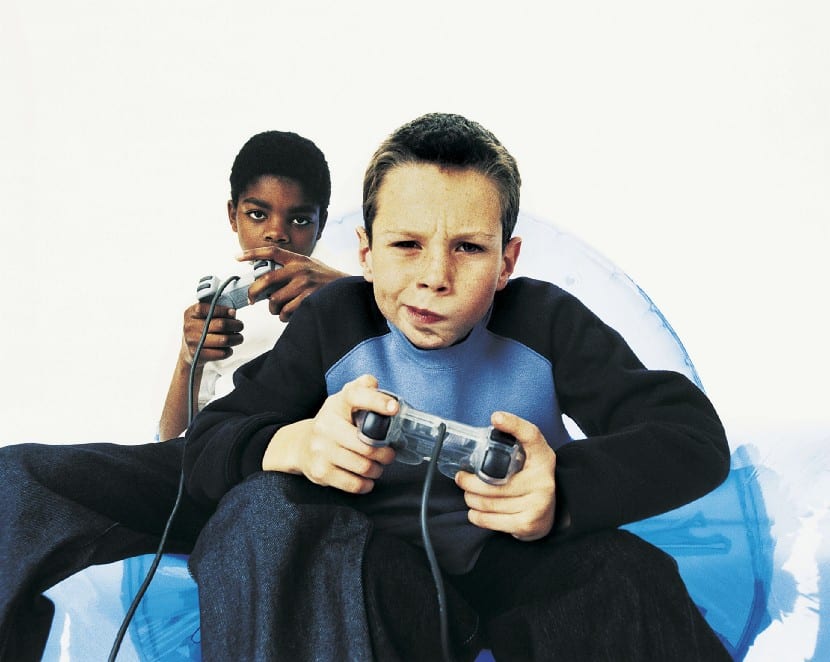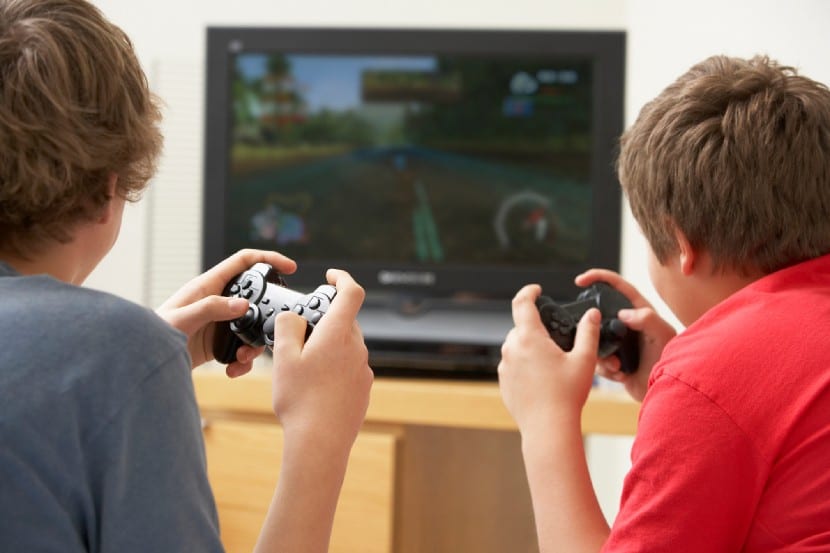
Much has been said about the impact of some content in video games on the emotional development of girls and boys; And although there are hundreds of recommendations to apply (of which the most sensible would be to pay attention to common sense), I sincerely believe that the advice is for each family to be able to adapt them, taking into account family dynamics or maturity of the kids.
For example, as you all know, there is a classification called PEGI, which orders video games based on the ideal age to play them (3, 7, 12, 16 and 18 years old). When considering the suitability, elements such as foul language, fear, sex, discrimination, violence are taken into account ... By the way, PEGI is Pan European Game Information, therefore it is a reference only for European countries. This document warns that classification is not made based on the difficulty or skills of the player or players… and yet…
However was one of the reasons given by a clerk of a well-known video game chain, when I asked him to explain to my son (then 10 years old) the reasons why I should not / could not play GTA. His words were something like: "parents focus on content, but in reality there are dozens of kids who buy games with which they cannot progress because they are PGI 16 or 18".
It is not entirely true what that kind little boy told me, there are children who have very specialized technological skills, and they can pass screens that would cost an adult much more. I fully understand the concern of families for violence, extreme fear or sexism in these entertainment media, I am also on that side; and at the same time I can tell you that the attraction for children between 11/12 and 14 years old, is precisely that the level of difficulty allows them to progress and develop skills. And no, I do not justify saying this that it seems good to me that they play, in fact I hope not to judge your decisions throughout the post.
Video games and children: moving within reason ... or at its limit.
And I do not want to judge them, not only because I prefer to live in the absence of judgment towards others, but because I have a son and a daughter, audiovisual media consumers; and like you, I have also prohibited, restricted, set limits, negotiated, denied, accepted. We are all learning about technology and our children, trying to move between common sense and the desire of children, between the inappropriate and the fun (because not all video games are extreme or harmful content).
But look, recently it has been announced that in China, minors will have restricted access to the Internet from 12 at night until 8 in the morning. Mother of beautiful Love! if they are going to take such a measure, Does it mean that there are a scandalous number of teenagers online at dawn? Probably yes, because in fact researchers from King College London, recently stated that “one in 5 minors (between 12 and 15 years old) suffered from sleep deprivation due to being connected. And this news catches my attention, even if it only has to do partially with today's topic, because should the Government come to rescue us from our inability to set standards (or teach sense) to girls and boys? Where is parental supervision?

Video game violence… does it generate violence in children?
Sometimes we take it for granted, and I'm not saying that with a prolonged stimulus, there are no peaks of violence in the consumer; I say the latter because violence is a choice (although not always fully conscious), and part of a will. In that case, could it be induced by the normalization of what is the object of video games like Metal Gear, Call of Duty, etc.? And I don't say anything about perversions like Mortal Kombat, or others.
Well, in answer to this question you can find your opinion, that of the neighbor, that of the child (who will say that they are not related), that of the studies that are published out there ... Who is right? well (as always) common sense. For example, I am going to put four examples of the use of violently loaded video games, although played in different environments. I do not pretend with this that you buy GTA to the little one of 8 who already asks you (it can happen, I assure you), nor justify anything, but rather that we place ourselves.
- Example 1: a 12-year-old who stays home alone every afternoon and spends 4 hours playing any of the aforementioned, with no attention other than that of the protagonists of the action. The child may accumulate frustration because he sees little of his parents, and he may also be desensitizing himself to violence.
- Example 2: a 12-year-old boy who goes to the neighbor's house on Fridays and Saturdays to play with the video console, the game is the same (call him x); There are 5 friends who all see the same thing but 3 managers take turns. In addition, after an hour and a half they usually get bored and go out to play in the street.
- Example 3: a boy of also 12 who plays for an hour every afternoon with his mother or father ... Identical contents; ok, it's wrong that the parents have given in to buy a set of PEGI 18, or maybe it is one of the oldest. The point is that the use is very controlled, and they also have the opportunity to talk about the content.
- Example 4: we have another 12-year-old teenager playing online recommended content for 18; Technology is the only thing that helps you focus on a task, and playing online allows you to keep in touch with your best friends at the Institute, outside of school hours. It is common that after playing a couple of games, they tell each other to go to do homework or study, and that everyone turns off the console.
I think the impact cannot be the same, but above all I think I must tell you some theories more serious than my elaborations, or at least developed by people or entities of a certain renown.

What does the American Academy of Psychology say?
You have the whole pose here. First, an introduction is made that allows the reader to unlink the association violent video games = violence, because it may be, but it is that violence is multi-causal. It is quoted that the media loves to discover that this or that teenager who was the protagonist of a shootout against his classmates or teachers, was a player of I know what video games! Ah that explains it all! Or does it explain nothing? Perhaps he received little attention because his mother had to go to 2 different jobs with which to pay for food, in addition, the father may have neglected them, even that in High School he was being bullied, or that ... Yes, I am exaggerated, But aren't the newspapers also when similar events happen?
I still, the APA yes what considers exposure to violent video games as a risk factor, one ... there is more. But in any case it was recommended to give a return to the North American classification system (the equivalent of PEGI), because they were still being too lax. It seems that reviewing research from 20 years ago, a reliable causal relationship is not found between playing this content and criminal violence. They also recommend developing attractive content for the youngest, especially for the most skilled, because really the PEGI 12 games for a child from 10 to 12 who is an experienced player, fall a bit short, precisely because they do not offer the challenges that they search (no longer so much for the contents).
What do Leo Hendry and Marion Kloep say?
I really like the work of these psychology professors from a Welsh university: they claim that the level of hostility is usually lower after playing a violent game; and that if it is related to violent behavior, it is because the minor has some type of emotional or behavioral disorder.

Sexism in video games.
We usually focus on violence, and no wonder: bloody battles, pimps who steal and traffic, etc. But what about sexism? Do we also pay attention to it? Because it seems quite dangerous to me, for people of ages in which they begin to have a manifest interest in sexuality, and in which they must build their own image and accept that of the other.
The Junta de Andalucía, in this document, speaks (among other things) of female profiles in video games: the girls are adorned, they are secondary figures, they are victims of violence (GTA) or they are complements of the “male” (Metal Gear). The body of women in the images of these video games is usually objectified, and may be serving as an object in the player's eyes. The feminine is associated with weakness (in general, there are exceptions, I know) or they are dominated by the male, even if it is in his representation, or is it not domination by a man dressed from boots to battle helmet and a girl with a thong? and a bra that barely covers the nipples?

Should we protect our children from these excesses?
Yeah right, and above all a yes conditioned to age, what is clear is that we must get used to:
- Choose following the PEGI classification, at least until they are 12 years old.
- From an age, abandon content that is too infantile and look for strategy games that allow developing skills and pose a challenge; Let's say… from… (between 8 and 10).
- Watch videos of the video games you order, to get an idea and decide whether to buy or not.
- Establish different hours of use (school days / weekends).
- Be clear about the limits (from what time is not played, each brother's turn if they like different things, etc.
- Observe problems derived from the use of devices or the consumption of content, and address them.
- Remember the basic online protection rules.
Remember: prudence, common sense and presence (and interest) in the lives of children.
Images - ohfunmedia, JBLivin
